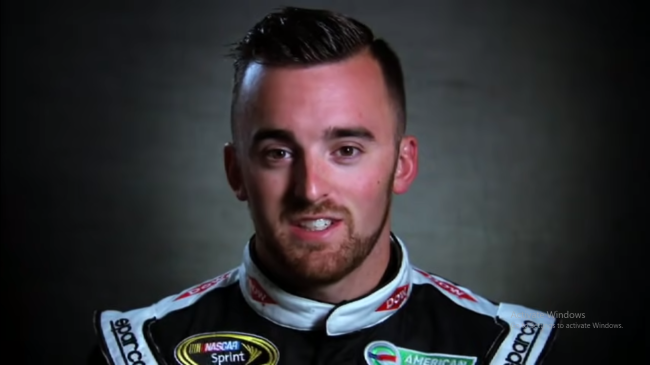In a significant move demonstrating its unwavering commitment to safety and integrity, NASCAR has indefinitely suspended Nicholas Covey, a jackman for Austin Dillon’s No. 3 Richard Childress Racing team. This decision comes as part of NASCAR’s rigorous enforcement of its substance abuse policy, following an incident that occurred after the Martinsville race on April 7, 2024.
Introduction
NASCAR’s decision to suspend Nicholas Covey highlights the organization’s dedication to maintaining a safe and fair environment for all participants. This article delves into the circumstances surrounding Covey’s suspension, the broader context of NASCAR’s substance abuse policy, and the implications for the racing community. By exploring the details of this case and NASCAR’s approach to substance abuse, we aim to provide a comprehensive understanding of the measures taken to uphold the sport’s standards.
The Incident and Immediate Consequences
Details of the Violation
Nicholas Covey’s suspension was triggered by a violation of Sections 4.1 and 10.1.A of the NASCAR rule book, which pertains to the substance abuse policy. The specific substance involved in the violation has not been disclosed, but NASCAR’s policy covers a wide range of substances, including stimulants, narcotics, and performance enhancers. Covey’s positive test was part of NASCAR’s random drug testing program, which is a key component of its commitment to safety.
Immediate Actions Taken by NASCAR
Following the positive test, NASCAR acted swiftly, issuing an indefinite suspension for Covey. This decision was made to ensure the safety of all participants and to reinforce the seriousness with which NASCAR treats substance abuse. Covey’s suspension was one of several disciplinary actions announced after the Texas Motor Speedway race weekend, underscoring NASCAR’s comprehensive approach to rule enforcement.
NASCAR’s Substance Abuse Policy
History and Evolution
NASCAR’s substance abuse policy has evolved significantly over the years. Initially based on suspicion, the policy shifted in 2009 to a more rigorous random testing system. This change was driven by a need to enhance safety and integrity within the sport. The policy now includes weekly random tests for drivers, crew members, and officials, ensuring that all participants are held to the same high standards.
Components of the Policy
The policy outlines a strict protocol for testing and consequences for violations. It covers a wide range of substances, including amphetamines, methamphetamines, ecstasy, benzodiazepines, barbiturates, and alcohol. The policy also addresses the use of performance enhancers, sleep aids, and beta-blockers. Participants who test positive are subject to immediate suspension and must complete the Road to Recovery program before being reinstated.
The Road to Recovery Program
Purpose and Structure
NASCAR’s Road to Recovery program is designed to support individuals who have violated the substance abuse policy. The program involves a comprehensive plan that includes treatment, rehabilitation, and counseling. It aims to help participants address their substance use issues and prevent future violations. The program is tailored to each individual’s needs and is overseen by NASCAR officials to ensure compliance and effectiveness.
Steps to Reinstatement
To be reinstated, participants must successfully complete the Road to Recovery program. This involves adhering to a treatment plan, undergoing regular counseling sessions, and passing subsequent drug tests. The goal is to ensure that individuals are fully rehabilitated and can safely return to the sport. The program emphasizes accountability and personal responsibility, reinforcing NASCAR’s commitment to integrity and safety.
Implications for Richard Childress Racing
Impact on the Team
Nicholas Covey’s suspension has significant implications for Richard Childress Racing (RCR). As the jackman for Austin Dillon’s team, Covey played a crucial role in the pit crew’s performance. His absence necessitates adjustments within the team to ensure that performance levels are maintained. RCR has already replaced Covey with Garrett Crall, demonstrating the team’s resilience and ability to adapt to challenges.
Team Response and Support
RCR has expressed its support for Covey during this challenging time, emphasizing the importance of the Road to Recovery program. The team is committed to ensuring that Covey receives the necessary support to address his substance use issues. RCR’s response highlights the team’s dedication to the well-being of its members and its adherence to NASCAR’s policies.
Broader Impact on NASCAR
Reinforcing Safety and Integrity
NASCAR’s decision to suspend Covey and other participants for substance abuse violations sends a strong message about the organization’s commitment to safety and integrity. By enforcing its substance abuse policy rigorously, NASCAR ensures that all participants are held to the highest standards. This approach helps maintain a fair and competitive environment, enhancing the sport’s reputation.
Setting a Precedent
The suspension of Nicholas Covey sets a precedent for how NASCAR handles substance abuse violations. It demonstrates that the organization will take decisive action to address any breaches of its policies. This precedent serves as a deterrent to others and underscores the importance of adhering to NASCAR’s rules and regulations.
Conclusion
The suspension of Nicholas Covey from Austin Dillon’s pit crew is a clear indication of NASCAR’s unwavering commitment to safety and integrity. By enforcing its substance abuse policy and supporting individuals through the Road to Recovery program, NASCAR ensures that the sport remains fair and competitive. This incident serves as a reminder of the importance of adhering to high standards and the consequences of failing to do so. As NASCAR continues to uphold its policies, it reinforces the values that make the sport a respected and admired part of the racing community.

